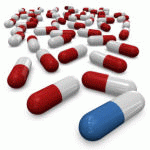Pharmacology
|
28 january 2023 09:32:52 |
| Marine Drugs, Vol. 21, Pages 94: Isolation and Characterization of NpCI, a New Metallocarboxypeptidase Inhibitor from the Marine Snail Nerita peloronta with Anti-Plasmodium falciparum Activity (Marine Drugs) |
|
Tweet Metallocarboxypeptidases are zinc-dependent peptide-hydrolysing enzymes involved in several important physiological and pathological processes. They have been a target of growing interest in the search for natural or synthetic compound binders with biomedical and drug discovery purposes, i.e., with potential as antimicrobials or antiparasitics. Given that marine resources are an extraordinary source of bioactive molecules, we screened marine invertebrates for new inhibitory compounds with such capabilities. In this work, we report the isolation and molecular and functional characterization of NpCI, a novel strong metallocarboxypeptidase inhibitor from the marine snail Nerita peloronta. NpCI was purified until homogeneity using a combination of affinity chromatography and RP-HPLC. It appeared as a 5921.557 Da protein with 53 residues and six disulphide-linked cysteines, displaying a high sequence similarity with NvCI, a carboxypeptidase inhibitor isolated from Nerita versicolor, a mollusc of the same genus. The purified inhibitor was determined to be a slow- and tight-binding inhibitor of bovine CPA (Ki = 1.1·× 10−8 mol/L) and porcine CPB (Ki = 8.15·× 10−8 mol/L) and was not able to inhibit proteases from other mechanistic classes. Importantly, this inhibitor showed antiplasmodial activity against Plasmodium falciparum in an in vitro culture (IC50 = 5.5 μmol/L), reducing parasitaemia mainly by inhibiting the later stages of the parasite’s intraerythrocytic cycle whilst having no cytotoxic effects on human fibroblasts. Interestingly, initial attempts with other related proteinaceous carboxypeptidase inhibitors also displayed similar antiplasmodial effects. Coincidentally, in recent years, a metallocarboxypeptidase named PfNna1, which is expressed in the schizont phase during the late intraerythrocytic stage of the parasite’s life cycle, has been described. Given that NpCI showed a specific parasiticidal effect on P. falciparum, eliciting pyknotic/dead parasites, our results suggest that this and related inhibitors could be promising starting agents or lead compounds for antimalarial drug discovery strategies. |
| 107 viewsCategory: Biochemistry, Molecular Biology, Pharmacology |
 Marine Drugs, Vol. 21, Pages 93: Microalgae-Based Biotechnology as Alternative Biofertilizers for Soil Enhancement and Carbon Footprint Reduction: Advantages and Implications (Marine Drugs) Marine Drugs, Vol. 21, Pages 93: Microalgae-Based Biotechnology as Alternative Biofertilizers for Soil Enhancement and Carbon Footprint Reduction: Advantages and Implications (Marine Drugs)Marine Drugs, Vol. 21, Pages 95: Bioactivity and Metabolome Mining of Deep-Sea Sediment-Derived Microorganisms Reveal New Hybrid PKS-NRPS Macrolactone from Aspergillus versicolor PS108-62 (Marine Drugs) 
|
| blog comments powered by Disqus |
MyJournals.org
The latest issues of all your favorite science journals on one page
The latest issues of all your favorite science journals on one page



